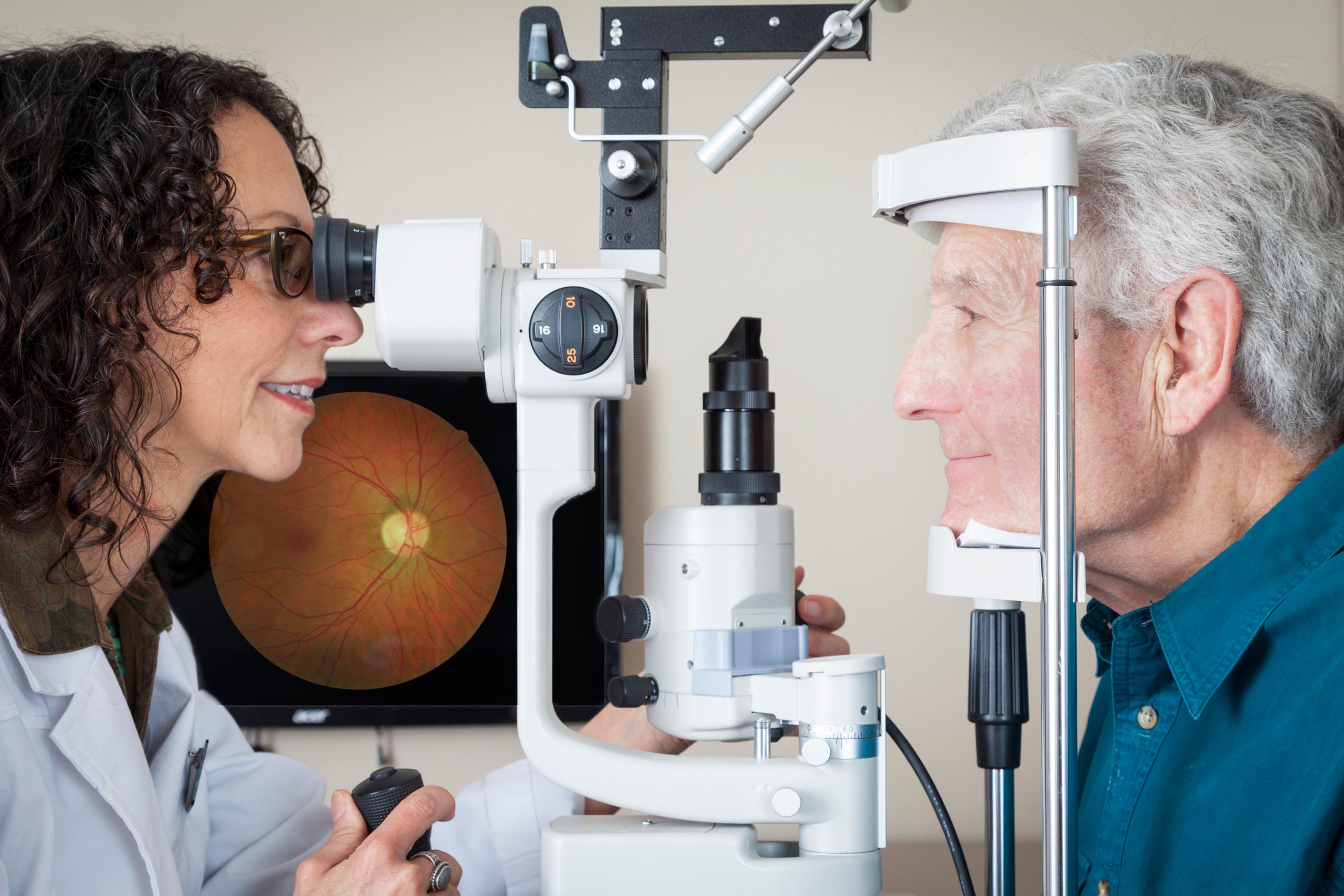What is Macular Degeneration?

Lindsay Knake
| 3 min read
Lindsay Knake is a brand journalist for Blue Cross Blue Shield of Michigan.

One of the leading causes of vision loss in older adults is macular degeneration.
Macular degeneration is an eye disease that causes blurred or loss of central vision, according to the National Eye Institute. In this disease, aging can lead to damage to the macula, which is a part of the retina that controls central vision.
Macular degeneration can make it harder to drive, read, cook or see faces. About 20 million Americans have the eye disease.
What are the types of macular degeneration?
There are two types of macular degeneration, dry and wet.
The dry form of macular degeneration makes up about 80% of cases. Tiny protein deposits form under the macula and dry and thin it. Vision loss in this form is slow and typically does not cause complete vision loss, according to the Cleveland Clinic.
In wet macular degeneration, abnormal blood vessels form and leak under the retina and macula. This form is worse and can quickly cause total central vision loss.
Peripheral vision remains with macular degeneration.
Age, smoking, nutrient deficiency, genetics, high cholesterol, high blood pressure and cardiovascular disease are all risk factors for developing macular degeneration.
What are the symptoms of macular degeneration?
Early stage dry macular degeneration does not have symptoms. In the intermediate stage, you may have mild blurriness or difficulty seeing in low light, according to the National Eye Institute.
Symptoms for late stage dry or wet macular degeneration include:
- Blurry, faded vision
- Distorted vision, such as straight lines looking wavy
- Seeing dark or blank spots
- Complete loss of central vision
How do I treat macular degeneration?
If you have macular degeneration in your family or if you have any symptoms, talk to your eye doctor. Your eye doctor also may find evidence of the disease in an annual eye exam. A comprehensive dilated eye exam, which is painless, allows your eye doctor to check for any problems in the macula or retina.
Although research continues, there is currently no treatment for dry macular degeneration aside from vision correction with glasses or contacts and learning how to live with low vision. Dietary supplements called AREDS may help delay or prevent macular degeneration. This supplement contains vitamins and minerals including:
- Beta-carotene
- Copper
- Lutein
- Vitamin C
- Vitamin E
- Zeaxanthin
- Zinc
Injections and laser treatments are possible options to treat wet macular degeneration.
Preventing macular degeneration is important.
- Eat nutritious food
- Quit smoking
- Exercise regularly
- Maintain healthy blood pressure and cholesterol
Image: Getty Images
Related:





